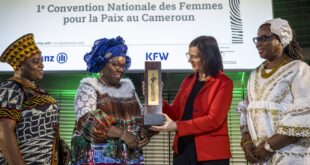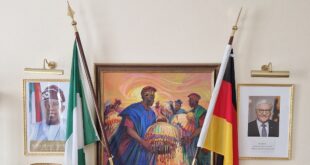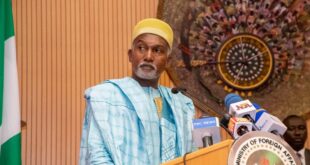Germany-based scholar and author Fekadu Bekele, PhD, offers an original African perspective on the G20 Africa Partnership initiative as he argues that the measures envisaged under the plan do not address the root causes of the social and economic crises in the continent. Dr Bekele posits that the priority of the West and its economic institutions is to keep Africa firmly within the orbit of Western-dominated international capitalist system and he suggests how the continent can realise its economic development potential to the benefits of its people.
Over the last three months there have been various seminars and meetings related to the G-20 Summit, which took place on 7-8 July in Hamburg. The Summit, among others, examined the German-sponsored G20 Africa Partnership initiative which aims to promote increased foreign investment and investment in infrastructure in the continent as a way to overcome the economic and social crises that are endemic across Africa.
In this regard the IMF, the World Bank and the African Development Bank, co-ordinated by the German Ministry of Finance, published a guideline “Compact with Africa” on how foreign private investments could be attracted to various African countries. “The main aim is to lower the level of risk for private investments, by improving economic and financial conditions and strengthening institutions,” said German Finance Minister, Dr Wolfgang Schäuble. “African countries, together with their bilateral partners and international financial organizations with proven expertise on Africa (such as the African Development Bank, the World Bank Group, and the International Monetary Fund), will jointly develop, coordinate, and implement tailor-made measures.”
The German Ministry for Development and Co-operation (BMZ) also worked out the so-called “Marshall Plan for Africa”. The Plan envisages an overhaul of development aid, closer collaboration with development partners, a stop to illegal flight of capital out of Africa and closure of the tax havens being used by multinational corporations. Moreover, unfair trade barriers would be dismantled and African products given better access to European markets.

Germany envisages that by combining these two programs increased investment in the continent will foster conditions that will encourage Africans to remain at home, thereby mitigating the migration crisis in Europe.
However, these programs will compel the participating African countries to accept more free trade and international economic neo-liberalism which have produced poverty across many Third World countries and are responsible for the ongoing mass migration of Africa youths to Europe.
The international community still believes that it is possible to tackle the continent’s economic and social crises by applying the same policies as in the past, however by giving them different names.
The “new” policies and programs that will be put in place under the G20 Africa Partnership initiative are to keep the status quo in many African countries. They are to ensure that African countries remain within the circuit of global capitalistic production and reproduction systems and provide more favourable conditions for profit-making for Western capital.
The main agenda of the G-7 and the G-20 is to ensure Africa’s weak position within the global market. They neither have a better alternative that can tackle the root causes of the social and economic crises that prevail in many African countries.
Without understanding and analyzing the root causes of the problem, one cannot work out an effective method that combats poverty and underdevelopment in many African countries.
Since all economic policies of the past that were introduced in the name of free market economy under the auspices of the IMF and the World Bank have failed, African governments must be allowed to choose the best option that brings genuine economic development in each country.
Irrespective of the pressures from the international community, African governments must become bold in dealing with their own societies, and they must not be dictated to by the so-called international organizations. Every government is responsible to its own people, and as such it must advance the interests of its own people.
What African countries need is a holistic policy that systematically eradicates all the political and cultural crises, and creates a social condition for free individual creative activity that brings genuine civilization.
The spiritual power and creative activity of the African masses could only be unleashed through a renaissance type of economic policy by changing the existing political power relationships and repressive state apparatuses that are organized to undermine freedom and perpetuate underdevelopment.
Only in this way can African countries gain true freedom and introduce humanistic values that are vital for the coexistence of different religious and ethnic groups.
Dr. Fekadu Bekele is specialized in development economics. He has published numerous articles on various topics about development economics and international political systems. He advises various institutions and gives lectures on economic development. He is the author of “African Predicaments and the methodology to solve them effectively“. He can be reached at fekadubekele@gmx.de
 THE AFRICAN COURIER. Reporting Africa and its Diaspora! The African Courier is an international magazine published in Germany to report on Africa and the Diaspora African experience. The first issue of the bimonthly magazine appeared on the newsstands on 15 February 1998. The African Courier is a communication forum for European-African political, economic and cultural exchanges, and a voice for Africa in Europe.
THE AFRICAN COURIER. Reporting Africa and its Diaspora! The African Courier is an international magazine published in Germany to report on Africa and the Diaspora African experience. The first issue of the bimonthly magazine appeared on the newsstands on 15 February 1998. The African Courier is a communication forum for European-African political, economic and cultural exchanges, and a voice for Africa in Europe.




















